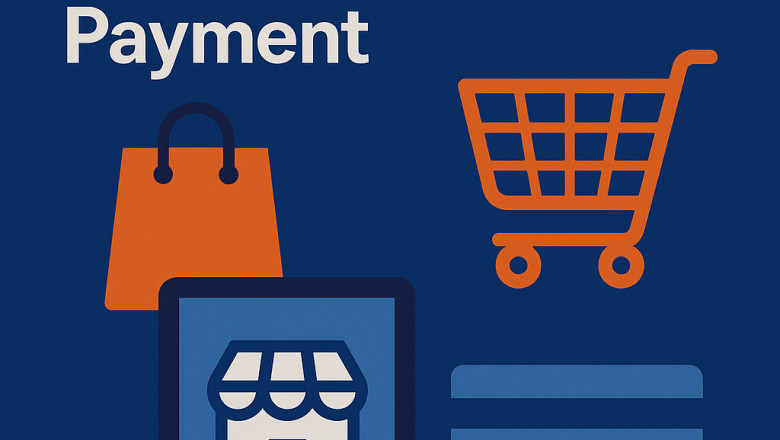views
This article explores the key trends and payment innovations shaping UK e-commerce in 2025 and how they’re redefining how online businesses engage with today’s connected consumers.
From Transactions to Relationships: The Shift in Commerce
One of the most notable transformations in UK e-commerce is the shift from transactional selling to relationship-based commerce. With customer acquisition costs rising by 15%, savvy retailers are focusing more on retention and lifetime value.
This shift demands more than just basic payment systems, it requires robust subscription management platforms. Today’s advanced billing solutions allow businesses to deliver personalised customer experiences, flexible plans, and automated communications, turning payments into powerful loyalty tools.
The Rise of Social Commerce in the UK
Social commerce is no longer an emerging trend, it’s a dominant force. With 76.4% of UK consumers planning to shop more via social platforms, retailers are embracing apps like TikTok, Instagram, and Facebook as key sales channels.
Platforms like TikTok have evolved into live shopping hubs, where discovery and conversion happen in real-time. In-app payment solutions make the journey from inspiration to checkout seamless, enabling impulse purchases and driving conversions among mobile-first audiences.
AI Takes the Lead in Customer Experience
Artificial intelligence is revolutionising the customer journey. AI-powered shopping assistants are now capable of learning individual preferences, recommending tailored products, and even executing purchases with minimal input from the shopper.
Payment processors are also leveraging machine learning to detect fraud in real-time, while reducing false declines that disrupt genuine transactions, improving security and customer satisfaction simultaneously.
Omnichannel Excellence: A Business Essential
A recent study found that 73% of UK shoppers use multiple channels during their buying journey and multichannel shoppers spend 30% more per order than single-channel users.
This highlights the growing importance of omnichannel payment strategies. Today’s top e-commerce businesses are integrating payment methods that work seamlessly across web, mobile, and physical environments. Tools like Pay by Bank app and secure payment links allow consumers to move fluidly across platforms without re-entering details, creating frictionless and secure purchase experiences.
How Payment Innovation is Driving Growth
The payment landscape is evolving rapidly, and payment APIs are central to building flexible, customer-centric transaction experiences.
Key innovations include:
· Pay by Link: Enables fast, professional payments via SMS, email, or messaging apps, ideal for SMEs with minimal digital infrastructure.
· Open Banking Payments: These are secure, real-time bank-to-bank transfers, cutting out card networks and reducing costs.
· WooCommerce Payment Plugins: Provide one-click integrations, dynamic routing, and smart fraud prevention for WordPress-based stores.
Payment Providers Leading the Charge
Several forward-thinking providers are driving innovation in the UK payments space:
· Wonderful: Offers simple yet advanced ecommerce integrations and developer-friendly payment APIs tailored for businesses of all sizes.
· Stripe: Sets the standard with multi-currency capabilities, scalable global infrastructure, and powerful developer tools.
· GoCardless: Specialises in open banking and direct debit solutions, perfect for businesses with recurring billing needs.
· Checkout.com – Combines flexible APIs with fraud detection and deep analytics, enabling better performance tracking and optimisation.
Marketplaces Still Dominate Discovery and Sales
Online marketplaces remain the cornerstone of UK e-commerce. With 74.6% of UK consumers shopping regularly on platforms like Amazon and 34.9% using second-hand marketplaces like eBay, these platforms have become not just sales channels but product discovery engines.
For smaller e-retailers, understanding how to optimise listings for marketplace algorithms is now as important as traditional SEO. Customer experience metrics — from response time to accurate product data, are critical for visibility and trust.
Sustainability as Standard, Not a Differentiator
Environmental sustainability is now a baseline expectation for UK consumers. Over 50.6% prefer brands that prioritise eco-friendly practices or offer second-hand alternatives.
Today, several payment providers endorse these values. Many now offer features that allow customers to:
· Round up purchases for environmental donations
· Offset their carbon footprint at checkout
· Support social impact initiatives through micro-contributions
These features turn payments into moments of positive engagement, aligning with the ethical values of modern consumers.
Conclusion: Adapting to a Rapidly Evolving E-commerce Era
UK e-commerce in 2025 is marked by innovation, adaptability, and a growing alignment with customer values. From AI and social commerce to sustainable payment technologies, the sector is being reshaped by evolving consumer expectations and fast-moving technology.
To succeed, e-commerce businesses must adopt integrated, future-proof tools — from subscription billing platforms to omnichannel business payment systems. The most successful will blend innovation with purpose, delivering not just convenience, but meaningful, value-driven experiences that resonate with today’s digital-savvy, socially conscious consumer.






















Comments
0 comment